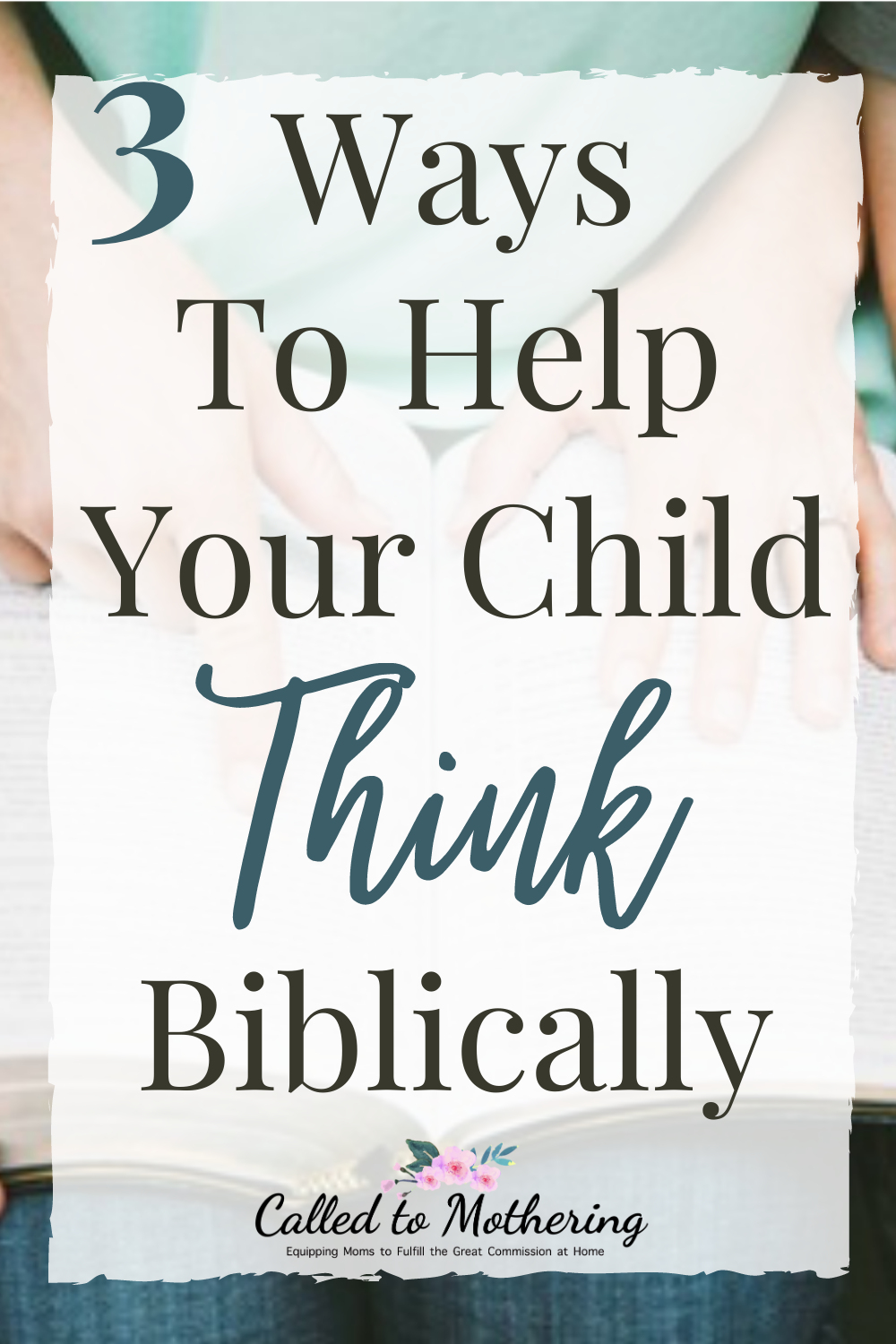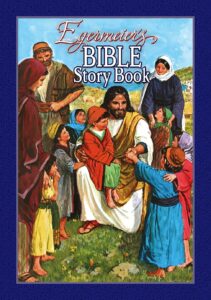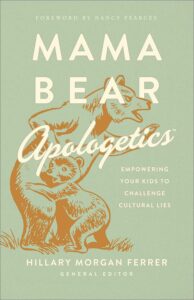
The term “worldview” isn’t one used very often in Christian circles. But it can and should change your entire parenting style.
Simply put, a worldview is the way in which a person views and makes sense of the world around them. It informs your understanding of reality, truth, and ethics.
Every time you give someone advice, you are drawing upon your assumptions about how some aspect of the world works.
Several years ago, my husband and I were invited to attend a fundraiser for a local Christian school, where More Than A Carpenter author Josh McDowell was the keynote speaker.
There aren’t many speeches I’ve heard that I remember almost word for word, but his is one of them.
Already alarmed by some of the trends we witnessed taking place in public school, Mr. McDowell’s explanation of worldview in education solidified why we had been feeling so unnerved.
We decided our son would attend a private Christian school, so he could receive an education from a biblical perspective on the world.
However, it isn’t primarily the Christian school’s responsibility to do this, nor is it the Sunday School teachers’, though all of those people can come alongside us and help provide encouragement and resources!
A big part of our calling as Christian parents is to guide our kids to see the world through biblical lenses.
In a postmodern society growing with disillusionment, it’s critically important that our kids develop a persuasive biblical worldview and learn to defend it logically.
Teaching them a Christian worldview is absolutely essential in building their faith, becoming Christ followers, and confronting the culture with the truth of the Bible.
This post contains Amazon affiliate links.

Read From God’s Word
One of the most practical ways we can do this is to, well, actually read the Word of God with them! It is imperative that parents help their children assemble the pieces of the Bible they’re handed in Sunday School.
In order to build their faith, they must understand how these various parts fit together to form a whole, complete narration of the story God wants us to know.
A couple of years ago, our family was blessed by reading Egermeier’s Bible Story Book, which retells the Bible in a chronological format. While it’s written in a child friendly way, it doesn’t water down or sugar coat the scriptures, nor does it omit large chunks like many children’s Bibles do for the sake of brevity.
It took us less than one year to read through, and for each chapter or so, I had my kids either color a picture or do a craft/activity that corresponded to it. I used the vast resources of Pinterest and Google to my full advantage here!
As much as possible, I tried to line up each volume of What’s in the Bible? with what we were reading, so that we could watch one of the videos once we had completed that particular part.
This series of 13 DVDs was a smash hit with my kids. They loved the puppets, songs, and skits all throughout each one.
Though it’s geared for elementary aged children, it has a lot of depth and “meat” to chew on for later discussion with young kids. Each book of the Bible, along with core theological truths, are discussed in a magazine style format.
Even as an adult, I learned so much I did not already know about Scripture, and laughed just as hard as my kids at some of the scenes! I found that by combining our Bible reading with these videos and also hands-on activities, it really helped to cement my children’s understanding of what they had learned.
Teach Them Apologetics
In a culture that undermines the inerrancy and authority of the Bible at every turn, it is so important that kids are prepared with a defense (an apologetic) for their faith.
It is not enough to just know the tenets of their faith. Religion doesn’t resonate with non-believers.
Our children need to be equipped to meet skeptics on the playing fields of science and logic, not so they can debate them necessarily, but so when they are questioned they can answer intelligently about why they believe.
We don’t want to hand our children a “blind faith”. It won’t be enough for them to just produce the old Sunday school answer, “Well, the Bible says…”
This is partly what it means to love the Lord with all your mind (Matthew 22:37). Our kids may know that God created the world and everything in it because they’ve read this a million times in Genesis, but they don’t necessarily know how to explain it themselves.
We need to connect the dots for them as to how the Bible really can be proved by science, archaeology, and history.
Put It Into Practice
While we definitely filter every type of media that comes into our home, we don’t censor everything. As much as it is appropriate, our kids are exposed to a variety of belief systems. Learning about another worldview is not the same as endorsing it.
Our kids do read books and watch programs (under our supervision) that may explain the origins of life from an evolutionary point of view.
We allow these things because our children will come in contact with them at some point, and we want them to already have had an opportunity to challenge these claims that go against Christianity, instead of being blind sighted by them.
So if we are studying a science unit and we come across a source that contradicts our belief in a young earth and creationism, we deal with that statement. My desire is that our children be able think critically without simply buying into the commonly accepted beliefs of our day.
We also learn about what life is like for people who have completely different experiences from ours in the West. I want our kids to gain a heart for all types of people around the world, knowing how to pray for and serve them, even if they are never called to the foreign mission field.
Ideally, they should act with gracious humility toward those who hold differing views and perspectives, instead of feeling threatened by them.
We need to teach our children how to be able to enter into sometimes difficult and uncomfortable discussions, in order to be better ambassadors for Christ to the world and not hermits removed from it.
My job as a parent is not only to prepare my kids to be functioning and contributing citizens in society, but to prepare them to respond to the strong cultural influences around them in an intelligent, rational, and also godly way!




[…] I research curriculum, educational methods, and teaching resources. I find new and exciting ways of engaging my kids in what they’re learning, and make sure everything is taught from a biblical worldview. […]